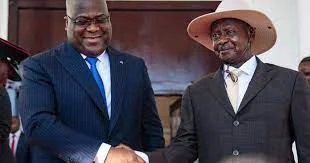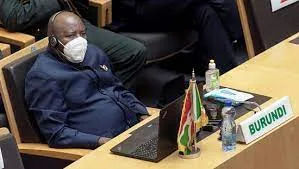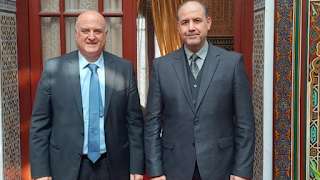The International Court of Justice (ICJ) on Wednesday set Kampala to pay Kinshasa $325 million in reparations for Uganda's invasion of eastern Democratic Republic of Congo (DRC) during the 1998-2003 war.
The DRC claimed more than $11 billion, an amount described as exorbitant by Uganda . The ICJ, the UN's highest court, has found that Uganda should pay the DRC $225 million for loss of life, $40 million for damage to property and $60 million for damage. to natural resources, said ICJ presiding judge Joan Donoghue .
“The Court sets the total amount of reparations awarded to the DRC at US$325 million ,” the judge said. “The Court considers that the evidence on file suggests that the number of deaths for which Uganda owes reparations is between approximately 10,000 and 15,000 people ,” she said.
The ICJ, headquartered in The Hague , had ruled in 2005 that Uganda should pay reparations for invading the DRC during the Second Congo War (1998-2003). This conflict involved up to nine African countries, including Uganda and Rwanda which supported rebel groups in the mineral-rich east of the country.
The two successive wars which, between 1996 and 2003, devastated the country - called Zaire until 1997 then the Democratic Republic of the Congo - caused several hundred thousand deaths.
Burundians welcome the lifting of European restrictions
In Burundi, residents of Bujumbura shared their optimism the day after the announcement by the European Union, which said it would resume financial aid to the country.
Suspended since 2016, direct European funding had been stopped in the name of respect for human rights and following the escalation of deadly violence in the country.
"I see that this measure comes at an opportune time and Burundi will benefit from it," explained Donatien Rwasa, a street vendor in Bujumbura.
On Tuesday, the European institution hailed the result of the peaceful political process undertaken during the general elections of May 2020 without forgetting the efforts to be continued and even multiplied in terms of human rights, governance and the state of right.
"It's a measure that has caused us so much pain, but fortunately the authors of this decision have pulled themselves together and lifted it unconditionally.Now we hope that everything will go in the right direction and above all that the economy will experience significant growth. Declared Jacques Bigirimana, director of the port of Bujumbura.
The lifting of the restrictions comes on the heels of a similar measure taken last November by the United States.
But NGOs condemned the move, saying nothing had changed to justify it.
Morocco and Israel discuss cooperation between Muslim imams and Jewish rabbis
The head of the Israeli mission in Morocco, David Govrin, held a meeting with the Secretary-General of the Muhammadiyah (Moroccan) League of Scholars, Ahmed Abadi, during which they discussed cooperation between Muslim imams and Jewish rabbis.
On Wednesday, Morocco and Israel discussed cooperation between Muslim imams and Jewish rabbis in the two countries.
This came during a meeting held by the head of the Israeli mission in Morocco, David Govrin, with the Secretary-General of the Muhammadiyah (Moroccan) League of Scholars, Ahmed Abadi.
Govrin said in a tweet on his Twitter account: "I was pleased to meet Dr. Ahmed Ebadi. We discussed several practical action plans, trying to bring them to reality regarding cooperation between Muslim imams and Jewish rabbis."
He added that "the cooperation aims to strengthen the foundations of coexistence, tolerance and acceptance of the other, and to overcome ideological differences to advance our societies towards a better future."
On December 10, 2020, Israel and Morocco announced the resumption of diplomatic relations between them after their suspension in 2000, following Rabat's freezing of relations due to the outbreak of the second Palestinian intifada.
Morocco is the fourth Arab country to agree to normalization with Israel during 2020, after the UAE, Bahrain and Sudan, while Egypt and Jordan have two peace agreements with Israel, since 1979 and 1994, respectively.



